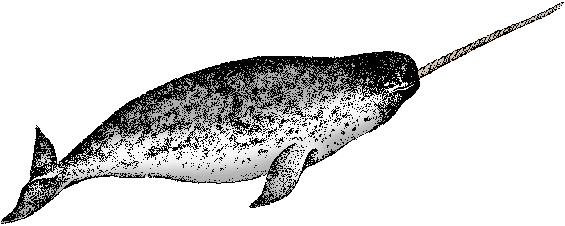Illustration of narwhal



Note: Although the narwhal is classified as a toothed whale (suborder Odontoceti), it does not possess any teeth in its mouth.
Share